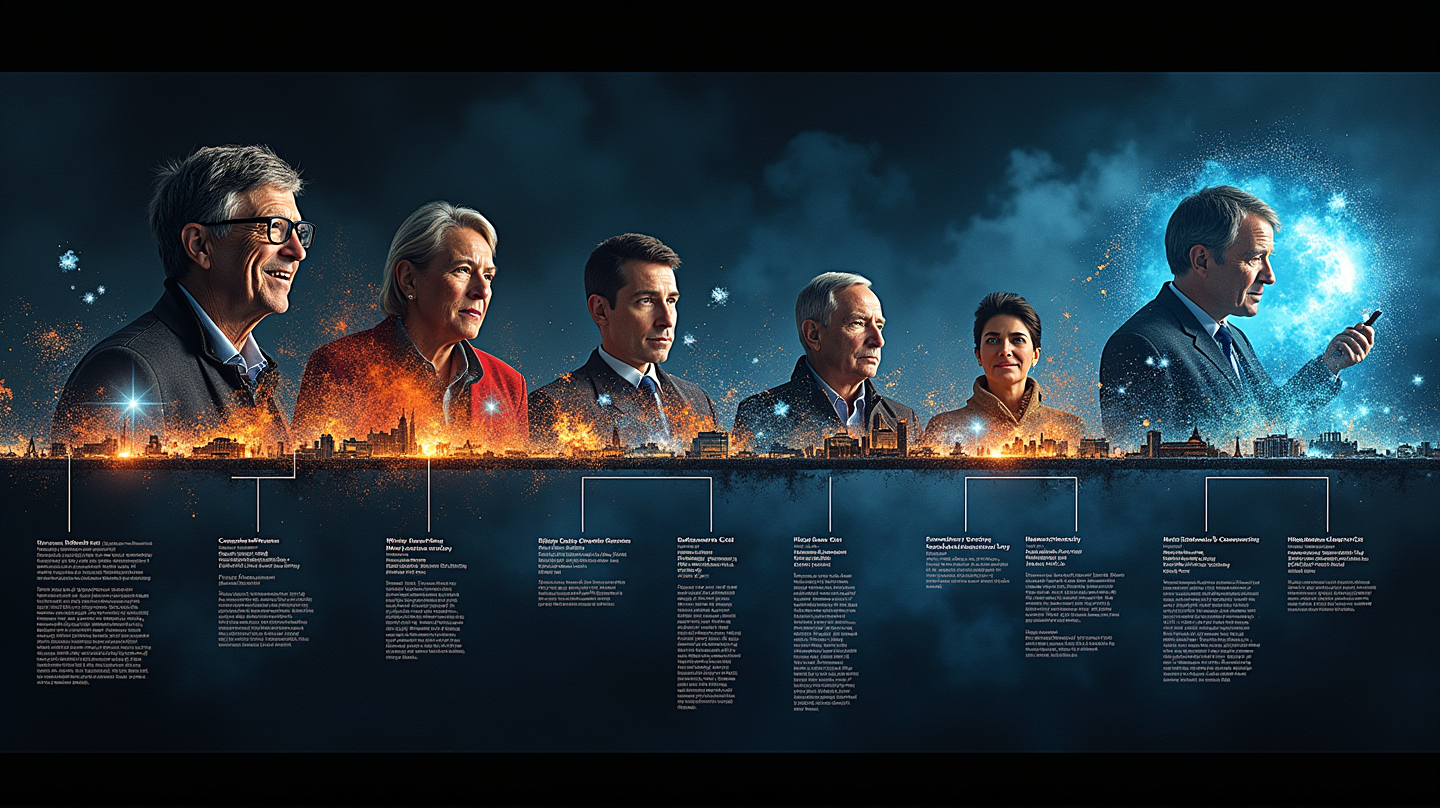Ever since its inception on April 4, 1975, Microsoft has grown from a small startup into a global titan with a market value surpassing $2.8 trillion. Founded by Bill Gates and Paul Allen, the company has become a pioneer in shaping the modern technological landscape, leaving an indelible mark on the world.
1975: The Vision Begins
Fifty years ago, young Bill Gates and his childhood friend Paul Allen embarked on a journey that revolutionized the tech industry. Dropping out of Harvard, Gates followed his passion and established Microsoft, focusing initially on BASIC interpreters for personal computers like the Altair 8800. It was Allen who cleverly coined the term ‘Micro-Soft,’ and so began a legacy like no other.
The MS-DOS and Windows Phenomenon
With shrewd foresight, Microsoft acquired the rights to the QDOS, transforming it into the iconic MS-DOS, and licensing it to IBM. This move propelled Microsoft to the forefront of software technology and solidified its position in the PC industry. The launch of Windows 1.0 in 1985 further cemented its dominance, becoming the world’s go-to operating system.
Expanding Horizons: Office Suite and Gaming
By 1989, Microsoft had ventured into productivity software, launching the Office suite for Apple’s Mac, and a year later, for Windows PCs. Integrating word processing, spreadsheets, and presentations, it became the industry standard. 2001 marked Microsoft’s bold entry into gaming with the Xbox, a platform that continues to compete fiercely against Sony’s PlayStation and Nintendo.
New Frontiers: Cloud Computing and AI
Under CEO Satya Nadella, Microsoft embraced cloud computing with Azure, quickly becoming a front-runner alongside Amazon Web Services. Their strategic collaborations, like the acquisition of LinkedIn in 2016 and the $1 billion investment in OpenAI in 2019, reinforced their stronghold in both professional networking and artificial intelligence.
Triumphs and Tribulations
Microsoft’s journey hasn’t been devoid of challenges. Missteps such as the acquisition of Nokia and the failure to capitalize on Windows Phone highlight the volatile nature of technology. Nevertheless, the integration of AI into its products—such as the groundbreaking Majorana 1 quantum chipset—demonstrates Microsoft’s relentless pursuit of innovation.
The Road Ahead
As Microsoft looks to the future, the tech giant is poised to influence industries with advancements in AI and quantum computing. Despite past blunders, initiatives like the acquisition of Activision Blizzard and ventures like SearchGPT hint at a company always ready to redefine itself.
According to Deccan Herald, while areas like the search engine market continue to be an uphill battle, Microsoft’s strategic focus on AI and cloud computing promises exciting prospects ahead.
As we reflect on 50 years of innovation and growth, Microsoft’s story serves as a powerful reminder of how vision, adaptability, and resilience can reshape history.
